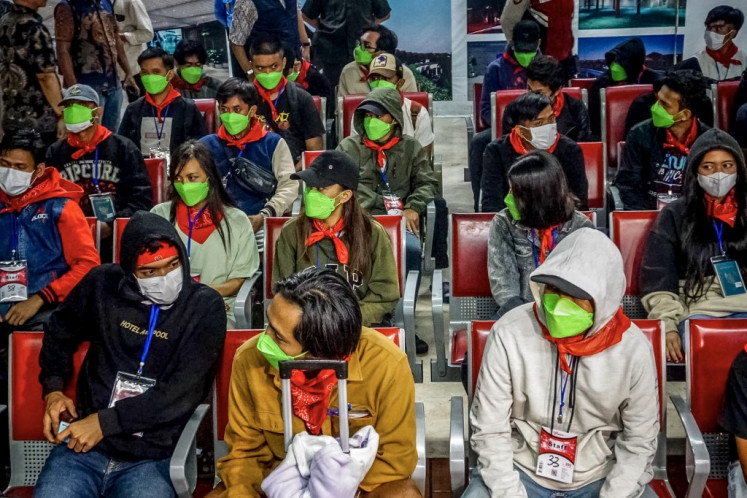Popular Reads
Top Results
Can't find what you're looking for?
View all search resultsPopular Reads
Top Results
Can't find what you're looking for?
View all search resultsState funds ‘lost’ in private accounts: PPATK
The Financial Transaction Reports and Analysis Centre (PPATK) has raised the alarm on a new corrupt practice among local government officials who use their private bank accounts to funnel money from the state budget to pay for their re-elections
Change text size
Gift Premium Articles
to Anyone
T
he Financial Transaction Reports and Analysis Centre (PPATK) has raised the alarm on a new corrupt practice among local government officials who use their private bank accounts to funnel money from the state budget to pay for their re-elections.
“Heads of local governments and their staff members have misused local budgets by conducting transfers of state funds into their own private accounts,” PPATK chief Muhammad Yusuf said on Friday.
“The officials then benefit by the interest gained from the money kept in the bank under their accounts. They then use the money to pay for their local election campaigns,” he said.
Data from PPATK said that such corrupt practices had transpired in all provinces across the entire country.
Jakarta received the undignified distinction of being the province most guilty of this form of graft, with some 101 reports of suspicious transactions, while East Kalimantan stood second with 96 reports and North Sumatra third with 84 reports.
PPATK recorded a total of 783 reports of suspicious transactions involving local officials from July to December 2011.
In the report, PPATK also singled out local government treasurers as officials likely involved in this form of corruption.
“We specifically targeted treasurers because in almost all provinces they were engaged in the practice. There are many examples in the investigation that occurred mostly during the year-end period,” PPATK deputy chief Agus Santoso said.
Agus, however, said that PPATK could not disclose the names of individuals allegedly involved in the transactions, “Let the law enforcers do their jobs,” he said.
PPATK recently announced findings of suspiciously large bank accounts belonging to low-ranking civil servants in the country.
It found that 50 percent of young civil servants were guilty of engaging in corrupt practices, including 10 individuals who possessed personal bank accounts containing hundreds of billions of rupiah.
Yusuf also said that officials from local governments had also found new ways of swindling money from the government, including the use of accounts belonging to members of their own families.
“Basically, the modus operandi is by using the bank account of a third person, including their wives and children,” he said.
He added that the money kept in the private accounts of local officials was then invested in legal financial instruments, such as Bank Indonesia certificates (SBI).
Agus said that reaping benefits from the interest could still be considered embezzlement, if not outright corruption.
He said embezzlement of state funds could only be prevented if family values could gain currency among government officials. “I am wondering where the family values have gone. For instance, when a wife acknowledges that her husband received a serious amount of money, she should have asked where the money came from,” he said.
PPATK predicted that based on its analysis, money laundering practices would continue until at least 2014. “Suspicious financial transactions would increase 2.8-fold compared to 2010 if no preventive measures are taken,” the PPATK 2011 year-end report said. (rpt)










